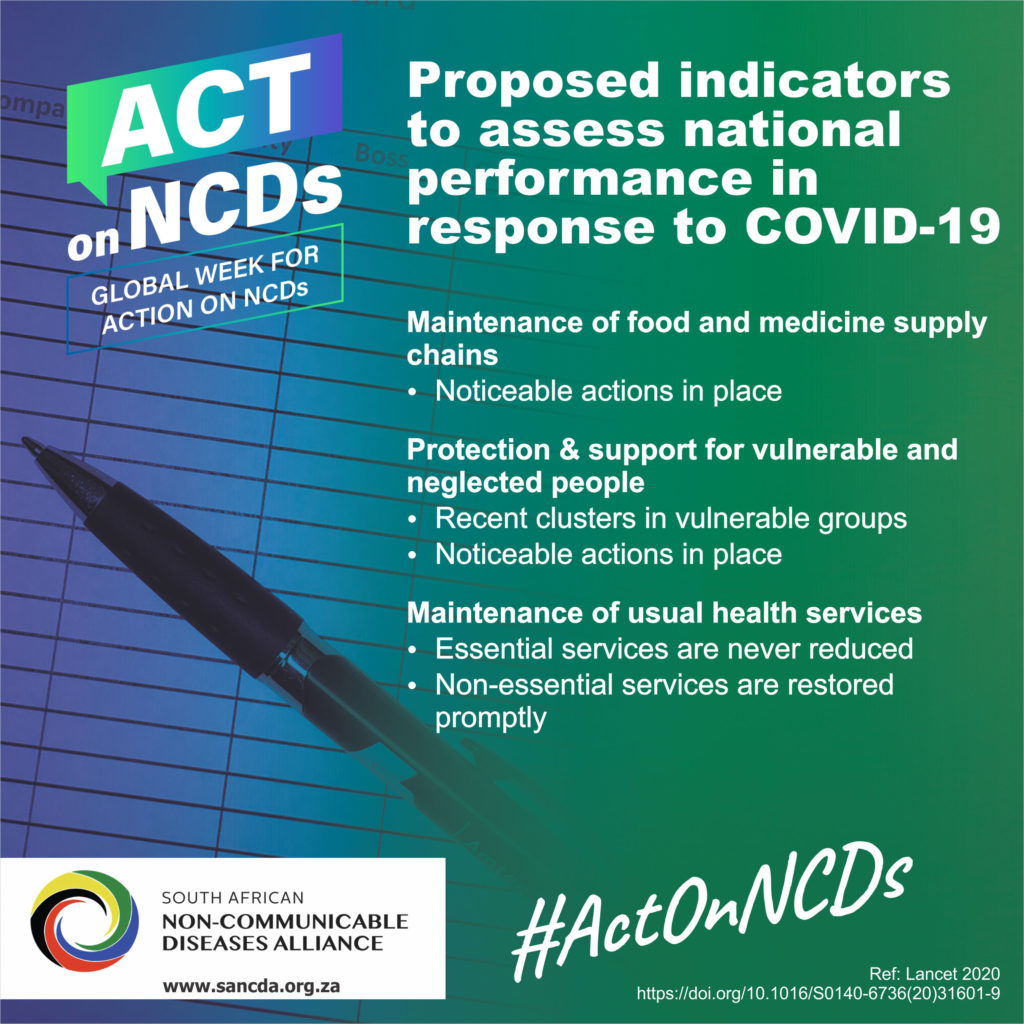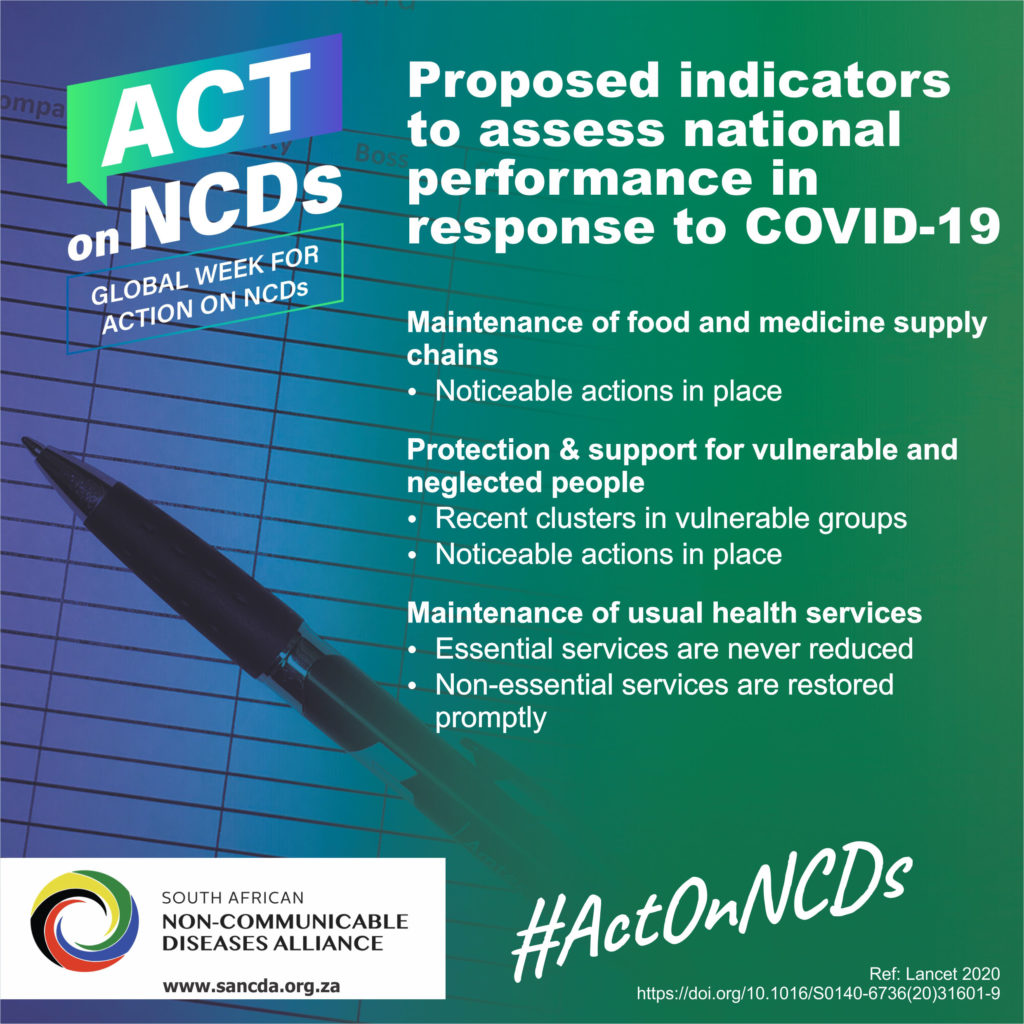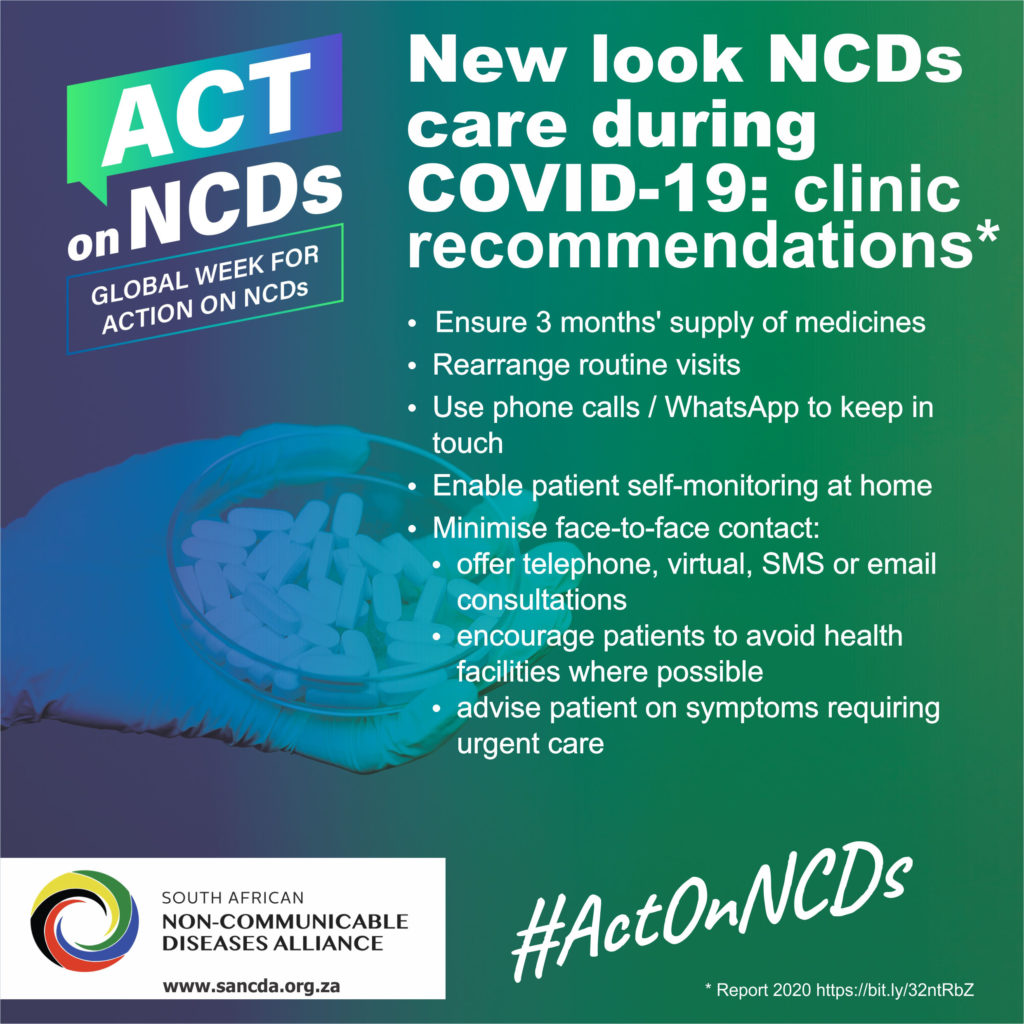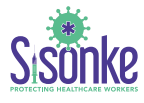

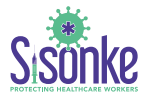
Vaccine rollout to healthcare workers in South Africa
Sisonke! Working together to protect healthcare workers
Day One of the first phase of COVID-19 the vaccine rollout to health workers was a huge success today. South Africa secured the single-dose Johnson & Johnson (JnJ) vaccine for use in the Sisonke (‘Together’) programme. Sisonke will be rolled out to up to 500,000 healthcare workers starting in 18 public sector hospitals across all nine provinces.
As a demonstration of confidence in the safety and efficacy of the vaccine leaders from organised labour took their shots at Steve Biko Academic Hospital today. These are leaders who are health workers themselves from organisations like DENOSA, HOSPERSA, NEHAWU, NAPSU, NUPSAW and others.
Protecting our healthcare workers is an urgent priority
Phase 1 of the vaccine programme is focused on healthcare workers. This is the first step in rolling out a comprehensive vaccine distribution strategy for the nation. Healthcare workers are the frontline of the country’s COVID-19 response and are 3-4 times more likely to contract COVID-19 than the general population. To date 40,000 South African health workers have contracted COVID-19, 6,473 have been hospitalised and 663 of our colleagues have passed on.
Phase 1 of South Africa’s three phase vaccine rollout strategy was paused temporarily earlier this month following concerns regarding the efficacy of the Oxford-AstraZeneca (also known as CoviShield) vaccine against mild-moderate COVID caused by the 501.V2 variant. CoviShield may still play a role in the National Programme. However, more research is needed to determine how and when it will be used. Vaccination using a safe and efficacious vaccine must start without delay to protect healthcare workers during a likely 3rd wave this winter. The switch to the JnJ vaccine allows for the country to restart Phase 1 vaccine rollout to keep our health workers safe.
Single-dose JnJ vaccine
The single-dose JnJ vaccine protects against severe COVID-19 in South Africa. The safety and efficacy of the vaccine was assessed in the international Phase 3 study, ENSEMBLE, which was conducted across Latin America, USA and South Africa with more than 43 000 participants. South Africa contributed around 7,000 participants to the trial between October 2020 and February 2021, including participants who were exposed to the 501.V2 variant. The long-term follow-up of study participants is still ongoing, as is required for the process of regulatory approval by the South African Health Products Regulatory Authority (SAHPRA) for commercial or emergency use. However, since the safety and efficacy of the vaccine has already been proven, the current rollout is being conducted under The Sisonke Open Label Program, to assess real world effectiveness among health care workers, who have already been prioritised for vaccination by the South African Government’s Covid-19 Vaccination Strategy.
The JnJ vaccine has been shown to be safe, with no safety concerns reported from past trials or rollouts. The ENSEMBLE trial showed excellent protection of a single-dose vaccine against severe COVID-19, including in South Africa, and as such a delay in rolling out the vaccine would be unethical.
There is a clear process for vaccine rollout to healthcare workers. To receive the vaccine, healthcare workers must:
(1) register on the South Africa Electronic Vaccination Data System,
(2) respond to an SMS invitation, and
(3) provide informed consent to take part.
Healthcare workers will receive a vaccination voucher and communication once a vaccination centre is open to render the service. To register use this link: https://vaccine.enroll.health.gov.za/#/
The Sisonke rollout will include meaningful collaboration between the original team who were involved in the ENSEMBLE trial, JnJ, and the NDoH and the SAMRC. The partners will closely monitor, track and assess the real-world rollout of the vaccine. They will measure:
(1) the occurrence of hospitalizations and deaths,
(2) the incidence of severe SARS CoV-2 infections,
(3) the diversity of breakthrough infections; and
(4) evaluate vaccine uptake among healthcare workers in South Africa.
This experienced team will utilise their trained and qualified staff including pharmacists, clinicians and others to receive, store and oversee the dispensation of the JnJ vaccine. Sisonke staff will work very closely with national and provincial health public and private vaccine centres to ensure that the vaccination of healthcare workers is done safely and carefully managed.
The protection of our healthcare workers through the rollout of the safe and efficacious vaccine is an urgent priority for South Africa.
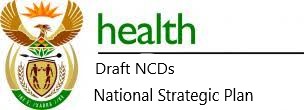
Untangling COVID-19 vaccine & NCDs
The SANCDA supports the prioritization of phase 2 vaccination. However, how this is to happen is less than transparent. PLWNCDs and related civil society organisations keep asking for transparent processes and policy for phase 2 vaccinations. South African policy must show the priority comorbid health conditions which place PLWNCDs at greatest risk for severe COVID-disease or death.
- Publish – COVID-19 deaths statistics by comorbidity/ underlying conditions.
- Compile – priority evidence-based list of comorbid conditions for phase 2 COVID vaccination.
- Communicate with public sector “health users” in phase 2 COVID-19 vaccination
1) Publish – COVID-19 deaths stats by comorbidity
The SANCDA want the ongoing publication on COVID-19 deaths according to the main underlying comorbidities. Civil society believes the release of this information is essential for transparency. The NDoH has this information for hospitalised patients. Sadly the format of publication doesnt show linked comorbidities.
However, before COVID-19 people who die outside of a hospital, the cause of death is notoriously poorly recorded. The challenge to the data collection is a long-standing issue. The most recent report from the 2016 cause of death statistics shows that 32.5% of reported deaths has this information missing. The top category of death is NCDs in 2016 but there has not been a publication on cause of death in SA since then.
This information is critical to ensure that the limited number of doses 12 million (6 million people we think) go those in greatest need according to facts.
The challenge is that outside of the NCDs sub directorate, the NDoH does not respond to our many requests for information. The NCDs civil society experience is that the long-held NDoH priority conditions of HIV, TB and malaria always remain just that. NCDs may get a mention and usually only diabetes and hypertension. So we want all of society to ask on behalf of the people living with NCDs.
2) Compile priority evidence-based list of comorbid conditions
So far in this pandemic we havent seen any transparent evidence based list of priority comorbid conditions. So how is this the priority to be determined? Compared with Millenium Development Goal (MDG) conditions like HIV/TB there are few NCDs indicators as shown in the National Indicator Data Set 2016.
South African health policy appears to be silent on how health priorities are determined. One of the few policies that address the needs of the population (priorities) is still in draft format and relatively recent, NHI Bill 2019.
PLWNCDs and their representative organisations wish to participate in and have a transparent evidence-based process to determine priority need and the criteria upon which this is based.
3) Communicate unambiguously with public sector users
The SANCDA asks for transparent clear communication on how people without health insurance/ medical aid will be selected and notified of vaccination date and time.
There are no adequate health systems information for people with NCDs. The current NHI health systems information is based on HIV and MDG information.
MDG conditions formed the basis for the development of health systems strengthening information system development and programmes such as the “Ideal Clinic.” integrated chronic disease management and CCMDD are all examples.
See the CCMDD access to medicines information and raise a storm.

Vaccination campaign to prioritise most in need, says President
With South Africa gearing to receive its first consignment of COVID-19 vaccines, President Cyril Ramaphosa has reiterated that government’s mass vaccination campaign strategy would reach all corners of the country, prioritising those most in need.
The President emphasised the commitment in the latest edition of his weekly newsletter on Monday 25 January
In coming weeks, the country will receive a batch of 1.5 million Astrazeneca vaccine doses from the Serum Institute of India, the world’s largest vaccine producer.
This, wrote the President, will signal the start of a mass vaccination campaign that will be the most ambitious and extensive in the country’s history.
“It will reach all parts of the country and will be phased to ensure that those most in need are prioritised. The first vaccines to arrive will be provided to health care workers, who will be targeted in the first phase.
“The second phase will include essential workers, teachers, the elderly and those with co-morbidities. The third phase will include other adults in the population,” President Ramaphosa said.
The comprehensive rollout strategy and an accompanying logistical framework will be implemented in partnership with the private sector, civil society, traditional leadership, the religious sector and others.
“It is vital that this is a society-wide campaign, in which everyone is involved and no-one is left behind,” he wrote.
“A year after the novel coronavirus started spreading around the world, the arrival of the vaccine gives great hope for our country’s social and economic recovery – and, most importantly, for the health of our people.”
The President said given the unprecedented global demand for vaccine doses, combined with the far greater buying power of wealthier countries, South Africa had to engage in extensive and protracted negotiations with manufacturers to secure enough vaccines to reach the country’s adult population.
“South Africa has engaged closely with the global COVAX facility and the African Union’s Vaccine Acquisition Task Team as part of the collective effort to secure vaccines for the world’s low- and middle-income countries. The doses that South Africa will receive through its participation in these initiatives, together with the agreements being made directly with manufacturers, are expected to ensure that the country has sufficient vaccines to contain the spread of the virus,” he said.
“From the moment the Coronavirus first reached our shores in March last year, we have acted swiftly and decisively, and informed by the best available scientific evidence, to save lives and protect livelihoods. Through the measures we have taken, we have been able to contain infections, protect our health system and prevent an even greater loss of life,” said the President.
He said: “Understanding that vaccines are essential if we are to overcome the pandemic, government has been working, both through multilateral initiatives and direct negotiations with manufacturers, to ensure South Africa can make the best use of vaccines when they become available”.
Regarding concern that government has not been sufficiently transparent about these efforts, President Ramaphosa said as government did with the announcement on the Serum Institute, the details of deals with manufacturers will be released as and when negotiations are concluded and we are released from the communications terms of the non-disclosure agreements.
“This is commonplace in such circumstances, and most governments have had to comply with similar restrictions,” he said.
“We recognise that it is important that the public must be kept abreast of developments on vaccine acquisition at all times. And government must be held to account for all the decisions it makes in this regard.”
Throughout the pandemic, he said, government has been open and transparent with the South African people on the health measures it is taking to secure the safety of people.
“We have sought to explain all our decisions, to listen to people’s concerns and to continuously update the country on the state of the disease,” he said.
He added: “All of us need to be part of this national effort and not allow the spread of rumours, fear and mistrust. False information and fake news can and does put lives at risk. We all need to work together to build confidence in the vaccine, to demonstrate its effectiveness and its safety – and to emphasise its vital importance in overcoming this deadly disease”.
For its part, he wrote, government will work to improve all its channels of communication, to keep the public regularly informed on the development of the vaccination programme, to provide information that is accurate and factual, and to continue to engage with and listen to the broad range of voices in society.
“We have a massive task ahead of us, probably far greater than any of us has ever undertaken before. But if we work together, if we support and trust each other and if we keep the lines of communication open, we will certainly succeed,” said the President.

Vaccination campaign to prioritise most in need, says President
With South Africa gearing to receive its first consignment of COVID-19 vaccines, President Cyril Ramaphosa has reiterated that government’s mass vaccination campaign strategy would reach all corners of the country, prioritising those most in need.
The President emphasised the commitment in the latest edition of his weekly newsletter on Monday 25 January
In coming weeks, the country will receive a batch of 1.5 million Astrazeneca vaccine doses from the Serum Institute of India, the world’s largest vaccine producer.
This, wrote the President, will signal the start of a mass vaccination campaign that will be the most ambitious and extensive in the country’s history.
“It will reach all parts of the country and will be phased to ensure that those most in need are prioritised. The first vaccines to arrive will be provided to health care workers, who will be targeted in the first phase.
“The second phase will include essential workers, teachers, the elderly and those with co-morbidities. The third phase will include other adults in the population,” President Ramaphosa said.
The comprehensive rollout strategy and an accompanying logistical framework will be implemented in partnership with the private sector, civil society, traditional leadership, the religious sector and others.
“It is vital that this is a society-wide campaign, in which everyone is involved and no-one is left behind,” he wrote.
“A year after the novel coronavirus started spreading around the world, the arrival of the vaccine gives great hope for our country’s social and economic recovery – and, most importantly, for the health of our people.”
The President said given the unprecedented global demand for vaccine doses, combined with the far greater buying power of wealthier countries, South Africa had to engage in extensive and protracted negotiations with manufacturers to secure enough vaccines to reach the country’s adult population.
“South Africa has engaged closely with the global COVAX facility and the African Union’s Vaccine Acquisition Task Team as part of the collective effort to secure vaccines for the world’s low- and middle-income countries. The doses that South Africa will receive through its participation in these initiatives, together with the agreements being made directly with manufacturers, are expected to ensure that the country has sufficient vaccines to contain the spread of the virus,” he said.
“From the moment the Coronavirus first reached our shores in March last year, we have acted swiftly and decisively, and informed by the best available scientific evidence, to save lives and protect livelihoods. Through the measures we have taken, we have been able to contain infections, protect our health system and prevent an even greater loss of life,” said the President.
He said: “Understanding that vaccines are essential if we are to overcome the pandemic, government has been working, both through multilateral initiatives and direct negotiations with manufacturers, to ensure South Africa can make the best use of vaccines when they become available”.
Regarding concern that government has not been sufficiently transparent about these efforts, President Ramaphosa said as government did with the announcement on the Serum Institute, the details of deals with manufacturers will be released as and when negotiations are concluded and we are released from the communications terms of the non-disclosure agreements.
“This is commonplace in such circumstances, and most governments have had to comply with similar restrictions,” he said.
“We recognise that it is important that the public must be kept abreast of developments on vaccine acquisition at all times. And government must be held to account for all the decisions it makes in this regard.”
Throughout the pandemic, he said, government has been open and transparent with the South African people on the health measures it is taking to secure the safety of people.
“We have sought to explain all our decisions, to listen to people’s concerns and to continuously update the country on the state of the disease,” he said.
He added: “All of us need to be part of this national effort and not allow the spread of rumours, fear and mistrust. False information and fake news can and does put lives at risk. We all need to work together to build confidence in the vaccine, to demonstrate its effectiveness and its safety – and to emphasise its vital importance in overcoming this deadly disease”.
For its part, he wrote, government will work to improve all its channels of communication, to keep the public regularly informed on the development of the vaccination programme, to provide information that is accurate and factual, and to continue to engage with and listen to the broad range of voices in society.
“We have a massive task ahead of us, probably far greater than any of us has ever undertaken before. But if we work together, if we support and trust each other and if we keep the lines of communication open, we will certainly succeed,” said the President.
COVID-19 and essential NCDs care
